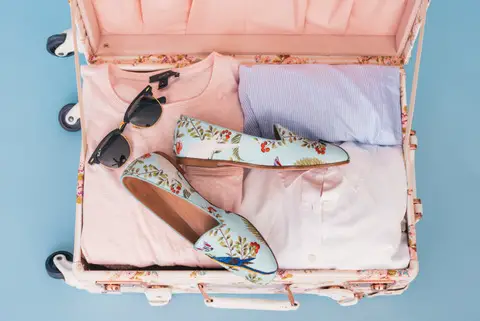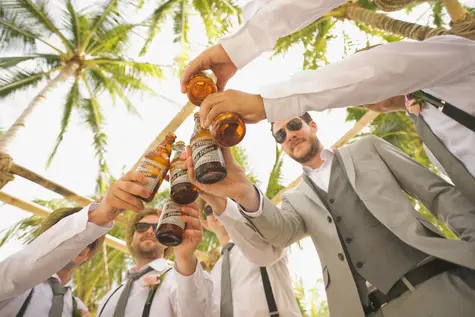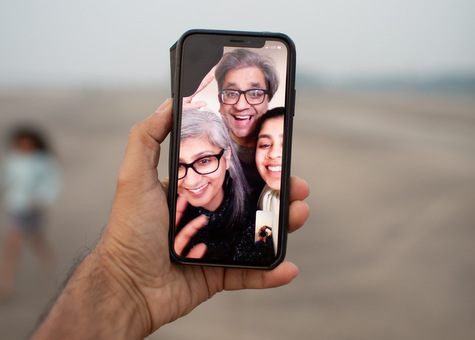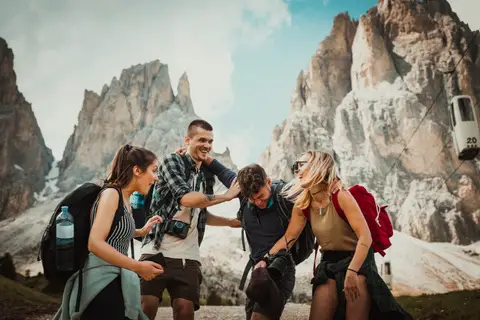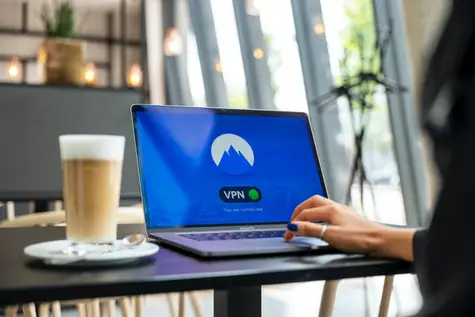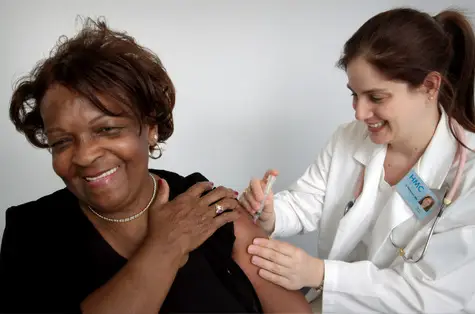How to Ensure Safety When Traveling Alone
While it may sound a bit daunting to some, traveling solo can be a truly rewarding experience. In fact, it’s thought that more than 75% of us travel solo at least once in our lifetime and roughly 20% regularly travel alone.
Traveling by yourself sounds a lot more stressful and dangerous than it actually is. Nevertheless, it’s still very important to use common sense and be aware of some of the challenges solo travelers may face.
If you’re thinking of traveling alone for the first time, whether it’s by choice or because it’s your only option, here are some useful tips to ensure your safety throughout your trip.


Dress Appropriately
You don’t necessarily have to dress in traditional dresses and attire of the place you are visiting, but you should attempt your best to adhere to their customs in terms of modesty or avoiding clothing that may be offensive.
Women may be expected to cover up more than they are used to and certain logos or sayings on t-shirts may prove offensive or even get you in trouble with the law for wearing them. You may be asked to remove your shoes when entering certain places or cover your head/face in the case of women.
You also want to think about packing clothing that will protect you from the elements whether it’s the cold or avoiding sunburn. Trekking may require proper hiking boots and long pants and shirts to better avoid poisonous plants and biting insects.
Go Easy on the Alcohol
We’re not saying you have to abstain from alcohol altogether, but you should be mindful of how much you drink while traveling. Having a clear head is vital for so many areas of travel whether it’s making it to the airport on time, navigating traffic on foreign roads where you may be driving on the opposite side of the street, or when simply trying to navigate your way back to your accommodation after walking around the city.
You should also be careful of what types of alcohol you drink and the places you drink it from. Avoid sampling home brews or drinks you are unsure of what exactly is in them. Some drinks may contain harmful chemicals and there is of course the possibility for drinks to be spiked in dodgy places.
You may also want to avoid alcohol due to the fact you may void your travel insurance policy or have certain claims denied if alcohol played any role in an event which led to a claim being made. You may also want to research whether alcohol is banned in certain countries or jurisdictions such as in Muslim nations. Sometimes exceptions may be made for foreign travelers, but you don’t want to end up on the wrong side of the law.
Tell Friends and Family Your Travel Plans
It’s always a good security measure to let someone know where and when you’re going. Short updates, whether it’s through phone calls or emails, allows friends and family to know you’re safe.
Share with them a copy of your itinerary and when you plan to check in with them so they may be able to help should you fail to make contact and actually need assistance.
There are many reasons why you may fail to check in and require help, such as being in an accident, getting lost or kidnapped, or having a medical episode. If you happen to have allergies or any current medical conditions, it may be wise to advise travel staff such hotel receptionists, tour guides, and flight attendants so they can help you better avoid allergens or so they at least will have an idea of what is wrong should you suffer from a medical episode.
Lastly, you can also notify your embassy of your travels as this often allows safety alerts to be sent to you. You may also want to notify any necessary financial institutions of your travels so holds don’t get placed on your credit cards due to you making what they would otherwise see as unusual purchases from a foreign country.
Be Careful Who You Trust
It’s great to make friends while traveling, whether it’s hanging out with other travelers or locals you just met. Just be careful not to share too much information about yourself. Never feel pressured into doing anything or going anywhere you do not wish to and be especially wary of strangers who seem very eager to help or ones that ask you a lot of questions.
Most people you meet will be friendly, but there are others that have other motives whether it’s to steal from you or do you harm. Many travelers have all seen enough of those Banged Up Abroad TV shows to see what could happen whether it’s getting kidnapped or coerced into smuggling drugs, and most victims regret not trusting their gut.
If you are truly concerned about someone you meet while traveling, you do have the ability to do online background checks on people these days. You can confirm identities and history of people on websites like Nuwber which can uncover contact details, email addresses, work histories, family details, and more.
Finally, avoid posting social media updates that announce you are traveling and refrain from sharing your itinerary with strangers. In addition to this putting you yourself at risk, it could potentially put your vacant home and its contents at risk.
Protecting Your Belongings
Protecting the items you bring with you on your travels starts with thinking about the way you pack. Valuable items should never be placed in checked luggage, rather keep them in your carry-on. And aim to leave expensive items that aren’t essential like certain precious jewelry or high-end designer labels at home.
When you get to your location, make use of your hotel safe for items like your passport, wallet, and jewelry. Only take what you need when you head out and if you don’t have a room safe you can ask hotel staff if they can secure valuable items.
Invest in theft-proof backpacks and suitcases, and maybe make use of new GPS tracking devices that allow you to monitor items like electronics.
Carry the Address of Your Accommodation with You
No security tip is easier than this. Many hotels and hostels have a small business card with the name and address which can be found at reception. If this is not the case, ask for a map and they should be able to mark the location of the accommodation for you.
Always take a copy of your passport and important documents with you. If your passport is stolen and you need to replace it, it’s easier when you have a copy of it with you. There are also countries where you may have to show identify for entry to various places.

Use a VPN
Using public Wi-Fi is always a risk. The last thing you want is hackers stealing your sensitive data. Purchasing a VPN or Virtual Private Network will allow you to secure data like user names, password, and search history from would-be thieves.
You may also want to go a step further by encrypting sensitive files on your computer and backing up files to a virtual storage in case your computer is stolen. This will allow you to not lose your files and still access them from anywhere.
In addition to the safety a VPN can offer, it also allows you to access websites that may be censored in various countries.
Protect Your Health
Traveling often increases the risk for getting sick, so it’s important to step up your precautionary measures. It starts with making sure you are up to date with any recommended or required immunizations like a Yellow Fever shot.
Make sure to pack more than enough essential medications you are currently taking in case of travel delays. You then want to pack hand sanitizer or sanitizing wipes for the plane and public transport. Wash your hands regularly, especially before eating and be mindful of what you eat.
Not all destinations have as strict food safety laws or may not have proper refrigeration. Foodborne illnesses can arise from eating food not handled or cooked properly. Be especially wary of street food that may have been exposed to warm temperatures for extended periods, flies, or harmful contaminants.
You may also have to be careful about drinking the local tap water or eating produce rinsed with local tap water. Even ice cubes made from the tap can pose a risk. Research what the water safety is like and stick to bottled water or purify your water if there is a risk for illness.
Do Your Research
When choosing any travel destination, you should always take the time to do a bit of research. Your first step should be going onto the website of your foreign affairs government department to see if any travel alerts are in place. Next, find out what dangers you may face while you’re there. Is the chance for a natural disaster high? Are there any venomous animals or poisonous plants to be aware of?
Look into the local culture and customs to understand what will be expected of you. Remember that you are a visitor when visiting a foreign nation. Look into what crimes may be common, widespread scams that travelers may face, and which areas of your destination may be more unsafe than others so as to avoid such neighborhoods.
Research allows you to have a clearer picture of what to expect so there are fewer hidden surprises that may derail your travel experience.
Purchase Travel Insurance
And finally, despite extensive prior planning and safety knowledge, there are times where things will unfortunately not go to plan. This is where travel insurance can come to the rescue, at least financially speaking anyway.
A comprehensive travel insurance policy does add a bit of cost to your travels but it can end up saving you a lot of money should you require overseas medical treatment. It helps cover you for travel delay costs, costs associated with dealing with natural disasters, loss of baggage and personal belongings, and countless other travel emergencies.
Just make sure to carefully read through your policy to make sure it offers all the coverage you need and what must be done or not done in order for claims to be successful should you need to make one.
Traveling solo may have its challenges, but with a little extra preparation you can handle most things that will be thrown your way. Know that countless travelers travel alone every year and you never really are alone. There are many ways you can get assistance while traveling should you need it. So, get out there and see the world for yourself, knowing that you’ll be safer now that you’re equipped with the knowledge of these top safety tips.

